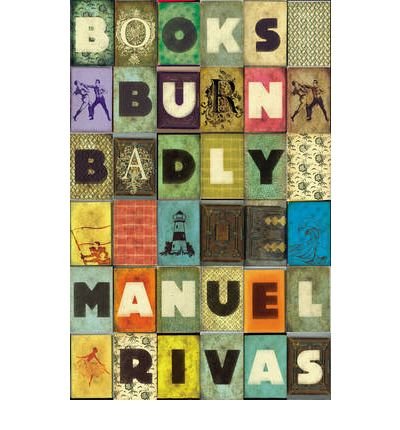Books Burn Badly
Rivas put the following words in the mouth of Polka the gravedigger, one of the most charismatic characters of Books Burn Badly: “Don’t be afraid of the dead. What you have to watch out for are the living who spoil life”. This novel, a literary masterpiece which blends aesthetic beauty with intellectual acuteness, gives to its readers the gift of expanding their minds and sensibilities. It is a reflection upon the tragic consequences of the Spanish Civil War, as its plot centres upon the burning of books by Falangists in Coruña’s Docks (Galicia) in August 1936. This sad event, mournfully evoked by Rivas, acts as the thread that unites the lives of his manifold characters: the boxer, the judge, photographer, the painter, the washerwoman, the prostitute, the singer, the intellectual, etc.
Narrative is not strictly linear, as the novel’s chapters, with poetic titles and frequently changing time and place, allow the reader to see how the same events were differently experienced from a variety of perspectives. Rivas carries out a sharp critique of political and intellectual repression during Franco’s dictatorship. A wonderful example of such critique is the perverse relationship between the censor Tomás Dez and the singer Luis Terranova, as it shows how close authority comes to tyranny (and absurdity) when claiming to impose order and control in a divided country.
Rivas raises a valid concern about the risks of intolerance, when freethinking ideas are too quickly labeled as dangerous, and when a ‘state of emergency’ is invoked to justify oppression. But Rivas does much more than condemning Franco’s dictatorship as he reminds us how contradictory persons are, being capable of generous acts of love but also of great cruelties. By revisiting the past in all its complexity, Books Burn Badly is a memorable lesson on understanding.










